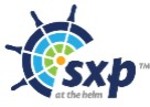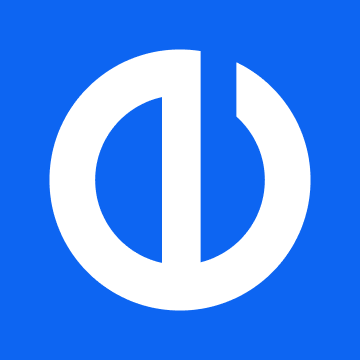Description

PRODASH

Tracked for Basecamp
Comprehensive Overview: PRODASH vs Tracked for Basecamp
As of my last update, I don't have specific or direct information on products named PRODASH and Tracked for Basecamp. Basecamp, however, is a well-known project management and collaboration tool with an existing ecosystem of third-party integrations and tools. It would be typical for products like PRODASH or Tracked to act as complementary tools or plugins designed to enhance Basecamp's functionality possibly through analytics, time tracking, or project management improvements.
That said, I can provide a hypothetical analysis based on typical functionalities of such tools:
a) Primary Functions and Target Markets:
PRODASH:
- Primary Functions:
- Dashboard and analytics solutions tailored for Basecamp users.
- Real-time project tracking and performance dashboards.
- Reporting features with visualization capabilities for better project insights.
- Potentially includes forecasting tools based on historical project data.
- Target Markets:
- Companies using Basecamp as their primary project management tool.
- Project managers and teams requiring enhanced reporting and data visualization.
- Medium to large organizations needing integrations with advanced data analytics.
Tracked for Basecamp:
- Primary Functions:
- Time tracking integrated directly with Basecamp projects.
- Billing and invoicing features that are synchronized with tracked time.
- Automated timesheet generation for employee productivity monitoring.
- Target Markets:
- Freelancers and consultants using Basecamp who bill by the hour.
- Teams that need to monitor employee productivity and project time allocations.
- Businesses looking to integrate time-based billing with project management tools.
b) Market Share and User Base Comparison:
-
Market Share:
As specific market share data for PRODASH and Tracked for Basecamp isn't available, their market share would typically depend on their level of integration, usability, and the size of the existing Basecamp user base. Basecamp has a vast market presence, and supplementary tools often cater to niches within its user community. -
User Base:
- PRODASH would appeal to users needing comprehensive analytics, which could include larger teams with complex project needs.
- Tracked for Basecamp would have strong appeal among users looking for seamless time management and billing solutions, including freelancers and small to medium enterprises.
c) Key Differentiating Factors:
-
Integration Focus:
- PRODASH might offer deeper insights and analytics capabilities beyond basic project tracking, focusing on data visualization and reporting features that Basecamp alone does not provide.
- Tracked for Basecamp would differentiate itself with a strong focus on time-related features like tracking, billing, and productivity analysis, which are critical for billable projects.
-
User Experience:
- Users might find PRODASH appealing if they require a strong emphasis on data-driven project management.
- Tracked for Basecamp could win over users with its straightforward and direct time tracking tools, making it easy to monitor hours across projects.
-
Value Proposition:
- PRODASH offers value through enhanced control over project metrics and performance analytics.
- Tracked for Basecamp offers value by addressing billing needs and integrating time management directly into project flows.
In conclusion, while I don't have precise data on these products, they would likely follow patterns observed in other third-party integrations in the Basecamp ecosystem. Their success would largely hinge on the quality of integration with Basecamp and addressing specific user pain points. Exploring Basecamp's community or customer testimonials could provide further insights into their actual market presence and user experience.
Contact Info

Year founded :
Not Available
Not Available
Not Available
Egypt
http://www.linkedin.com/company/prodasheg

Year founded :
Not Available
Not Available
Not Available
Not Available
Not Available
Feature Similarity Breakdown: PRODASH, Tracked for Basecamp
To provide a feature similarity breakdown for PRODASH, Tracked, and Basecamp, we'll need to examine the core features, user interface comparisons, and any unique features that differentiate these products. Here's a general overview based on typical project management and productivity tool features:
a) Core Features in Common
-
Project and Task Management:
- PRODASH: Offers project creation, task tracking, and timelines.
- Tracked: Focuses on task tracking and project overview.
- Basecamp: Provides a structured system for managing projects and tasks.
-
Collaboration Tools:
- All three platforms include features for team collaboration, such as message boards (Basecamp), team discussions (PRODASH), and communication threads (Tracked).
-
File Sharing and Storage:
- Each product allows file uploads and sharing within project spaces, although the storage limits and integration with third-party services (like Google Drive or Dropbox) may vary.
-
Time Tracking:
- While not universal to all three, time tracking is a common feature in many task management tools. Ensure to verify if PRODASH and Tracked have built-in time tracking like some Basecamp competitors.
-
Notifications and Alerts:
- Users receive notifications regarding updates, deadlines, and messages across all platforms.
b) User Interface Comparisons
-
PRODASH: Typically offers a customizable dashboard to give users an at-a-glance overview of projects and tasks. It emphasizes data visualization and highlights key performance metrics.
-
Tracked: Often features a minimalist interface with a focus on simplicity and ease of use, designed to provide straightforward project tracking and task completion overviews.
-
Basecamp: Known for its intuitive and user-friendly interface, Basecamp offers a clean and straightforward design that facilitates ease of access to different project areas like to-dos, messages, and schedules.
c) Unique Features
-
PRODASH:
- May offer advanced data analytics and KPI tracking, giving businesses insight into performance metrics, which can be a distinguishing factor for data-driven teams.
-
Tracked:
- If specialized for specific industries (like software development or freelance work), may include industry-specific templates or integrations (e.g., JIRA integration for software projects).
-
Basecamp:
- Known for its Hill Charts, which offer a unique way to visualize project progress and risks.
- Automatic check-ins can regularly solicit updates from team members without requiring meetings.
Conclusion
While PRODASH, Tracked, and Basecamp share core project management and collaboration features, they each offer unique elements that cater to different user needs and preferences. Evaluating the specifics of each platform based on the latest updates or user reviews can provide more detailed insights into the feature sets.
Features

Team Collaboration
Real-time Analytics
Project Management
User Management

Time Tracking and Reporting
Customization Options
Task Integration
User-Friendly Interface
Team Collaboration
Best Fit Use Cases: PRODASH, Tracked for Basecamp
PRODASH:
a) Best Fit Use Cases:
- Project Management-Intensive Companies: PRODASH is ideal for businesses heavily reliant on project management. This includes sectors like marketing agencies, consulting firms, and software development companies where multiple projects are managed simultaneously.
- Data-Driven Decision Makers: Companies that emphasize data analytics and require detailed reports to make informed decisions would find PRODASH beneficial. This can include tech startups or corporate teams focused on metrics-driven performance.
- Scalable Operations: Designed to accommodate growth, PRODASH is suitable for businesses anticipating scale-ups, needing robust project oversight and data integration capabilities.
- Complex Projects: Projects that require intricate planning, tracking, and adjustment (like product development or event planning) can benefit greatly from the comprehensive tools offered by PRODASH.
Tracked for Basecamp:
b) Preferred Use Cases:
- Basecamp-Focused Teams: Tracked is most effective for teams already using Basecamp as their primary management tool. It enhances Basecamp’s capabilities with added time-tracking features, making it a perfect fit for existing users.
- Simplified Time Management: For teams requiring straightforward time-tracking solutions without the overload of complex features, Tracked serves as a minimalist approach to monitoring project timelines.
- Small to Medium Enterprises (SMEs): It caters well to SMEs that need efficient time management but may not have the budget or need for more comprehensive project management tools.
- Freelancers and Remote Teams: Individuals or small remote teams that prioritize time efficiency and straightforward task tracking can leverage Tracked for seamless integration with Basecamp.
d) Catering to Different Industry Verticals or Company Sizes:
-
Industry Verticals:
- PRODASH: Fits well in industries requiring complex project tracking and data analysis, such as technology, marketing, and consulting. It aligns with sectors focused on metrics-driven performance and scalability.
- Tracked for Basecamp: Appeals to diverse sectors that prioritize time management and task tracking, including creative industries, freelancing sectors, and any environment where Basecamp is the central project management tool.
-
Company Sizes:
- PRODASH: Best suited for mid-sized to large companies with complex project management needs and resources to integrate advanced analytics into their workflow.
- Tracked for Basecamp: Ideal for small to medium businesses and freelancers who require efficient project and time tracking without the complexities of larger systems. It provides excellent value for teams already utilizing Basecamp.
Pricing

Pricing Not Available

Pricing Not Available
Metrics History
Metrics History
Comparing undefined across companies
Conclusion & Final Verdict: PRODASH vs Tracked for Basecamp
To provide a comprehensive conclusion and final verdict for PRODASH and Tracked for Basecamp, let's evaluate both products based on various criteria and aspects important for users.
Conclusion:
a) Best Overall Value:
Determining the best overall value between PRODASH and Tracked for Basecamp depends on the specific needs and priorities of your team. If robust data visualization and comprehensive reporting features tailored specifically for Basecamp are paramount for your organization, and you do not mind investing in a dedicated tool for this purpose, PRODASH may offer the best value. However, if you are looking for a more integrated and cost-effective tool that complements Basecamp with essential tracking capabilities, and simplicity is a key factor, then Tracked might be more suitable.
b) Pros and Cons:
PRODASH:
-
Pros:
- Strong emphasis on advanced data visualization and analytics.
- Provides customizable dashboards that offer detailed insights into project metrics.
- Designed specifically to integrate seamlessly with Basecamp, enhancing its functionality.
- Ideal for teams that require high-level project performance tracking and reporting.
-
Cons:
- Might be expensive for smaller teams or projects with limited budgets.
- Potentially complex setup, requiring time investment to configure dashboards effectively.
- May have a steeper learning curve for users unfamiliar with data analytics tools.
Tracked for Basecamp:
-
Pros:
- Generally integrates well with Basecamp, aiming to enhance its existing project management features.
- Offers straightforward integration and ease of use with minimal setup required.
- More budget-friendly, especially suited for small to mid-sized teams.
- Facilitates basic time tracking and project progress monitoring.
-
Cons:
- Limited advanced reporting capabilities compared to solutions solely focused on analytics.
- Might not meet the needs of teams seeking highly detailed or complex analytics features.
- Could potentially offer less customization and flexibility in dashboard reporting.
c) Specific Recommendations:
-
For Organizations Needing Advanced Analytics: Choose PRODASH if your project management processes heavily rely on data-driven decisions, and you need detailed insights and analytics to enhance your Basecamp functionality.
-
For Simplicity and Cost-Effectiveness: Tracked for Basecamp is a great choice if your team requires an easy-to-use tool that fills in tracking gaps without complicating your Basecamp environment, especially if budget constraints are a consideration.
-
Hybrid Usage: In scenarios where a balance between cost-effectiveness and the need for some advanced features is required, consider how each product can complement existing tools or explore modular usage where feasible. Trial both products, if possible, to assess which aligns better with your team’s workflow.
Ultimately, the choice should align with the specific workflow, scale, and project management focus of your organization. It is recommended to thoroughly assess feature compatibility with your operational needs and test user experience through free trials or demos when available.
Add to compare
Add similar companies



